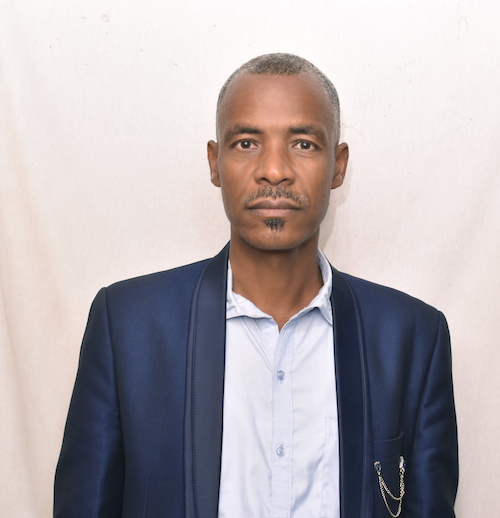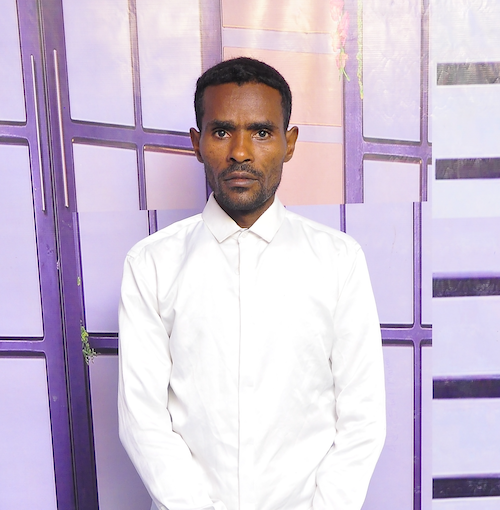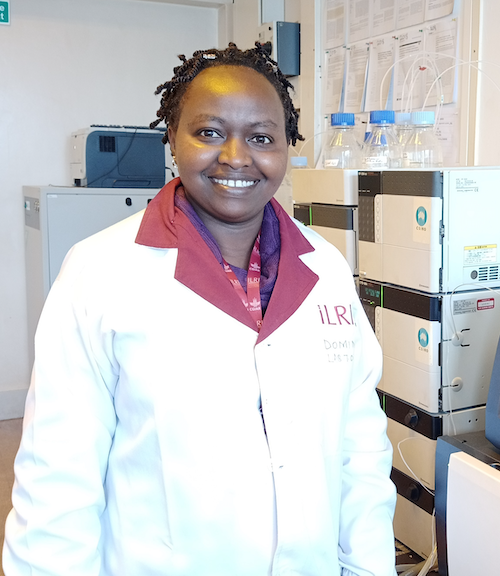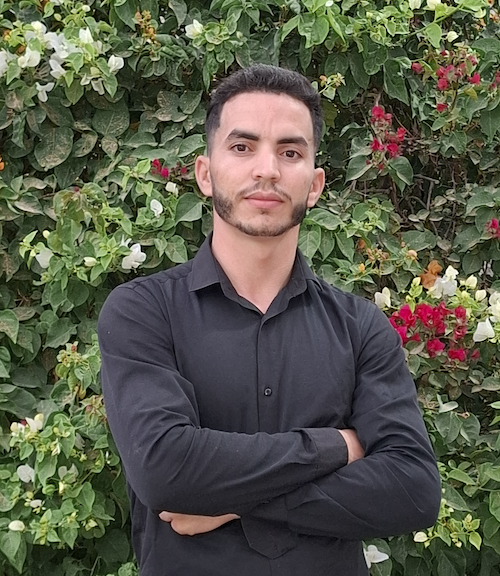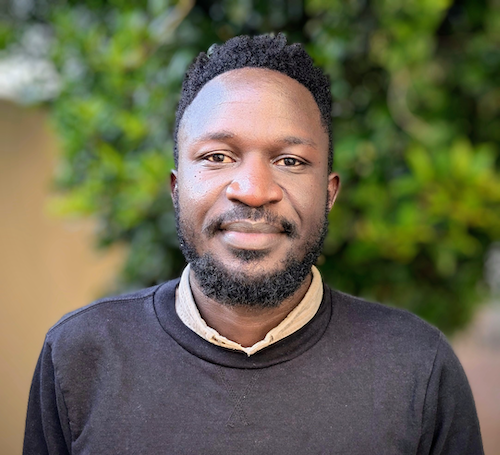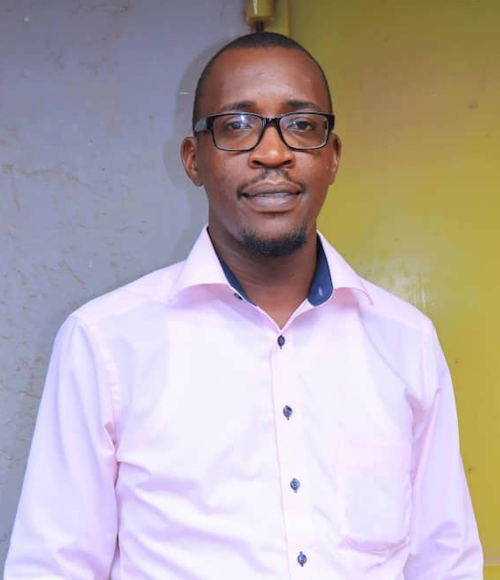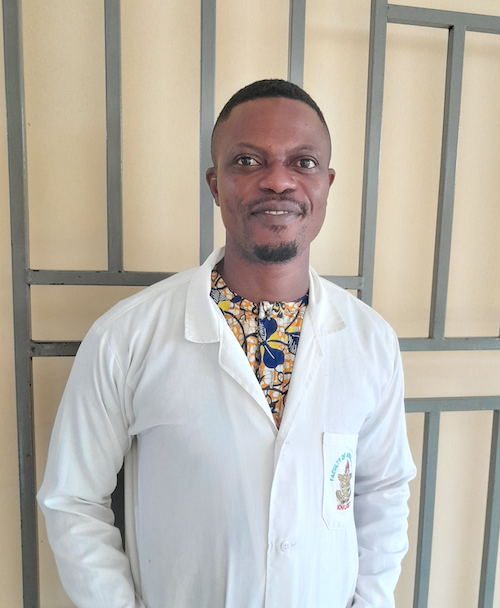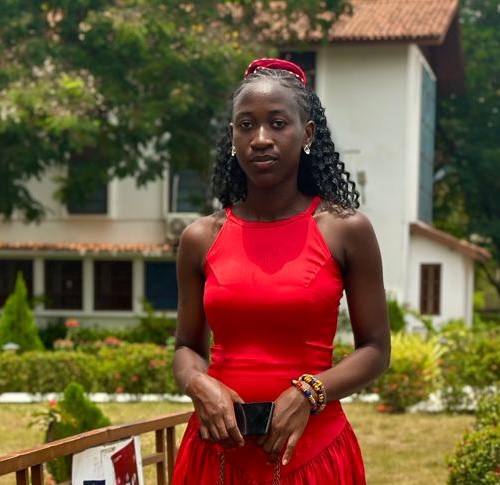EXCEL Africa News: 2025 Scholar Award Recipients Announced!
The African Plant Nutrition Institute (APNI) has announced the finalists of its annual African Plant Nutrition Scholar Award. A total of ten students were selected from advanced science programs in Africa focused on plant nutrition and the management of nutrients applied to crops.
This scholarship is supported through APNI’s continued and valued partnership with Mohammed VI Polytechnic University (UM6P) and OCP Group (OCP S.A.). This initiative strives to encourage the brightest minds to focus on the critical target of continued advancement of the science of crop nutrition across Africa. Applications undergo a rigorous process via the selection committee who consider the full spectrum of academic and personal achievements for each potential recipient. Each student receives $2,000 (U.S. Dollars).
Since its establishment in 2020, this scholarship program, part of APNI’s Excel Africa initiative to recognize excellence in crop nutrition research and outreach, has distributed $120,000 to 60 graduate students across Africa. This year’s recipients include:
Mr. Awouminassi Marcellin ATAKOUN — BENIN
Doctorate Program: Kwame Nkrumah University of Science and Technology (KNUST)
Area of Study: Cattle corralling for improved soil fertility, maize production and for climate change resilience in the Sudano-Savanna area
Mr. Awouminassi Marcellin ATAKOUN is a Ph.D. candidate in Climate Change and Land Use under the WASCAL (West African Science Service Centre on Climate Change and Adapted Land Use) program at Kwame Nkrumah University of Science and Technology (KNUST), Ghana. His study is examining cattle corralling for improved soil fertility, maize production and for climate change resilience in the Sudano-Savanna area of Benin, West Africa. Cattle corralling is a traditional soil management practice that can contribute to long-term soil carbon sequestration and nutrient enrichment. The study evaluates soil physical and chemical properties and examines maize productivity under current and projected climate conditions using crop simulation models. The objective is to provide a scientific basis for integrating traditional crop-livestock practices into sustainable land use strategies that enhance soil health and resilience to climate variability. The expected impact is to inform climate-smart agricultural policies and promote low-emission farming systems in sub-Saharan Africa.
Awouminassi’s future career goal is to become a leading researcher and policy advisor in climate-smart agriculture and sustainable land management across Africa. He aspires to work with international research institutes and regional stakeholders to design, implement, and scale up land use interventions that address both environmental sustainability and food security. He also plans to contribute to academic capacity-building through teaching and mentorship in African universities, while actively engaging in science-policy dialogues to ensure that research outcomes are translated into impactful development actions.
Ms. Logbochi Marie Elisabeth ASSOH — CÔTE D’IVOIRE
Doctorate Program: Félix Houphouët-Boigny University
Area of Study: Optimizing cassava yield and improving its nutritional quality through rational fertilization methods in the forest and pre-forest agroecological zones.
Ms. Logbochi Marie Elisabeth ASSOH is a Ph.D. student at the Doctoral School of Science, Technology and Sustainable Agriculture (ED-STAD) of Félix Houphouët-Boigny University in Côte d’Ivoire. Her research is optimizing cassava yield and improving its nutritional quality through rational fertilization methods in the forest and pre-forest agroecological zones of Côte d’Ivoire.” Her work aims to define fertilization strategies that can simultaneously enhance agro-nutritional performance, economic profitability, and environmental sustainability of cassava cultivation, based on soil characteristics in the targeted agroecological zones. This research is carried out at the National Center for Agronomic Research (CNRA) in Bouaké, Côte d’Ivoire, and focuses on seven localities selected for their importance in cassava production and their specific agroecological profiles. These localities are: Gagnoa, Soubré, Bouaké, Agboville, M’Bahiakro, Dabou, and Brobo.
The main beneficiaries of this research are cassava farmers, who will receive practical recommendations to increase yield and profitability. Researchers and agricultural institutions will also benefit from new scientific insights to refine cassava fertilization strategies. Moreover, companies involved in fertilizer production and distribution may use these findings to develop more suitable formulas aligned with local needs.
Personally, she aspires to pursue a career in tropical agronomic research, focusing on the development of sustainable fertilization strategies that contribute to enhancing the nutritional value of staple crops in Africa. Upon completion of her Ph.D., I plan to conduct a postdoctoral fellowship in this field and later join an international research organization such as CIAT (International Center for Tropical Agriculture) or ICARDA (International Center for Agricultural Research in the Dry Areas). Her goal is to contribute meaningfully to the improvement of agricultural systems and food security for vulnerable populations.
Mr. Gebremedhin Chameno CHALITE — ETHIOPIA
Doctorate Program: Hawassa University
Area of Study: Unlocking Socioecological Benefits and Indigenous Management of Agroforestry Systems in the Gofa Zone
Mr. Gebremedhin Chameno CHALITE is a Ph.D. student focused on small-scale traditional parkland and home garden agroforestry. His study seeks a better understanding of the influence of indigenous management on plant functional diversity and soil health, including tree-crop interactions. This research has significant expected impact and relevance at local, national, and potentially international levels. It will validate and give recognition to local farmers’ knowledge; provide scientific backing for traditional practices and identify areas for improvement; promote practices that combat land degradation, improve soil fertility; fill critical knowledge gaps regarding the socioecological functions of indigenous agroforestry in specific Ethiopian contexts.
Gebremedhin’s immediate plan is to contribute to academic discourse and pursue postdoctoral research. His future career plan focuses on sustainable land management, agroforestry and community-based natural resource management in developing countries like Ethiopia, contributing to sustainable development and environmental conservation.
Mr. Gemechu Berhanu GERMESSA — ETHIOPIA
Doctorate Program: Haramaya University
Area of Study: Productivity of Maize and Selected Soil Physical and Chemical Properties as Influenced by Application of Mineral Fertilizers and Organic Sources under Changing Climate in West Oromia
Mr. Gemechu Berhanu GERMESSA is a Ph.D. student focused on the evaluation of the effect of integrated climate smart agricultural soil amendment approaches on soil properties, yield, and nutrient use efficiency of maize under changing climate in western Ethiopia. He is assessing how current farmer practices in managing soil acidity and map spatial variability of key soil properties, determining the optimum rate of combined organic sources and inorganic NP fertilizers to restore soil health and boost maize yield under changing climate in acidic soil, determine optimum rates of lime, N and blended NPS fertilizers for smallholder farmers those who can afford to purchase for maize production; and using DSSAT crop modeling to simulate maize performance and soil-maize crop interactions under current and future climate scenarios specific to acidic soils. Crop models simulate basic soil physical and chemical properties, plant phenology, growth, yield and N and P nutrient use efficiency of maize. Field experimental data collected at three locations for two consecutive seasons will be used for model calibration and validation.
This study provides practical information on improving soil health and boost maize yield, possibly improving the incomes of Ethiopian farmers. Moreover, this resilience-oriented strategy has the potential to strengthen Africa’s capacity to adapt, enhance food security, and align with sustainable development priorities. Germessa looks forward to completing his doctorate degree and pursuing a career in higher education, focusing on teaching, research, and community service in my field to make a meaningful contribution.
Ms. Chebet ARUSEY — KENYA
Doctorate Program: University of Eldoret
Area of Study: Fate of Antibiotic Residues and Antibiotic-Resistant Bacteria in Livestock Manure and their Effects on Greenhouse Gas Emissions and Nutrient Cycling
Ms. Chebet ARUSEY is a Ph.D. student focused on the environmental fate of three commonly used veterinary antibiotics—Oxytetracycline, Enrofloxacin and Tylosin—in livestock manure, and how they affect greenhouse gas (GHG) emissions, microbial communities, and nutrient cycling. The study is structured around three key objectives: to evaluate how these antibiotic residues influence emissions of methane (CH₄), nitrous oxide (N₂O), carbon dioxide (CO₂), and ammonia (NH₃), as well as their impact on the nutrient quality of manure as a fertilizer; to determine the degradation patterns of these antibiotics and assess their effects on bacterial community structure and functional genes involved in nitrogen and carbon transformations; to examine how antibiotic residues affect soil nutrient dynamics, particularly nitrogen and phosphorus cycling, when manure is applied to soils.
The research involves controlled incubations, microcosm studies, and field-scale experiments for sustainable manure management. It integrates GHG measurements, shotgun sequencing, manure and soil analysis, and LC-MS/MS residue detection to examine how antibiotics influence microbial activity and nutrient dynamics. The outcomes inform policy on safe manure use, support nutrient circularity, reduce GHG emissions, and improve the sustainability of integrated crop-livestock farming systems.
Chebet aspires to advance sustainable soil fertility and climate-smart agriculture through research on nutrient cycling, manure management, and microbial interactions. My goals include improving fertilizer efficiency, influencing policy, mentoring young scientists, and promoting practices that enhance soil health, reduce emissions and antimicrobial resistance, and support resilient, sustainable food production systems.
Mr. Mbarek EL-GUIRAH — MOROCCO
Doctorate Program: African Sustainable agriculture Research Institute (ASARI) – Mohammed VI Polytechnic University (UM6P)
Area of Study: Adaptation of alternative forage crops to salinity and drought stresses in desert conditions of southern Morocco
Mr. Mbarek EL-GUIRAH is currently pursuing his Ph.D. at the African Sustainable agriculture Research Institute (ASARI), Mohammed VI Polytechnic University (UM6P), where the focus of my research is “Adaptation of alternative forage crops to salinity and drought stresses in desert conditions of southern Morocco”. The objective is to evaluate how alternative forage crops respond to saline and drought conditions prevalent in marginal lands of the Moroccan desert regions, with a special emphasis on identifying crops and practices that can sustainably improve soil fertility while enhancing crop productivity. By exploring tolerant crops, best agricultural management practices, the research is expected to significantly sustain farmer’s productivity and profitability, thus supporting sustainable agriculture in Morocco’s desertic areas. The research findings could potentially offer viable solutions for managing limited water resources and saline soils, thereby increasing agricultural resilience to challenging conditions.
He is dedicated to advancing agricultural sustainability and food security, particularly in desert environments of Morocco and across the African continent. His career goal is to become an agricultural researcher and consultant specializing in climate-smart agriculture practices. Mbarek aim to contribute to developing practical solutions and advising farming communities on improving crop productivity, enhancing soil health, and adapting agricultural practices to increasingly challenging environmental conditions. Through collaborative research, outreach, and implementation of innovative agricultural techniques, I am willing to make tangible contributions to improving livelihoods and environmental sustainability in regions affected by climate change.
Mr. Conrad Wabwire ADDIKAH — SOUTH AFRICA
Doctorate Program: University of Pretoria
Area of Study: Exploring the Current and Future Potential of Cassava Cultivation
Mr. Conrad Wabwire ADDIKAH is a Ph.D. candidate in agronomy at the University of Pretoria. His dissertation is exploring the current and future potential of cassava cultivation in South Africa. Conrad aims to assess the viability of cassava as a resilient crop in the face of climate change. His research will map and synthesise literature on cassava production and utilisation trends, challenges, and opportunities in Southern Africa. Through field trials, Conrad will evaluate the adaptability and performance of various cassava genotypes by analysing genotype and genotype-by-environment interactions. He will also apply the EcoCrop model using CMIP5 and CMIP6 climate projections to assess cassava’s current and future suitability across South Africa. Additionally, water use efficiency trials will be conducted on select drought-tolerant, high-yielding genotypes. Two crop models, APSIM-Cassava and DSSAT-CSM MANIHOT, will be calibrated and validated with field data to simulate cassava growth and predict yields under climate scenarios. These tools will also guide the development of climate-smart adaptation strategies.
Expected outcomes include identifying stable, high-performing genotypes; developing cassava suitability maps; improving understanding of cassava’s water use, and delivering robust, locally adapted crop models. The research will generate practical insights for farmers, policymakers, and breeders to integrate cassava production into South Africa’s food systems sustainably.
Upon completing his Ph.D., Conrad plans to pursue a research and teaching career in agronomy, with a focus on climate resilience. He aims to share his expertise through university teaching and targeted training for research institutions, while contributing to global scientific knowledge through impactful publications.
Mr. Donald KAYUZA — UGANDA
Masters Program: Makerere University
Area of Study: Effects of Lime, Biochar, and Cattle Manure on Soil Physicochemical Properties, Yield, and Nutrient Use Efficiencies of Lowland Rice
Mr. Donald KAYUZA is a M.Sc. student at Makerere University studying at the Department of Soil Science and Land Use Management. His research focuses on rain-fed lowland rice systems practiced by smallholder farmers in Africa. These rice production systems have a high yield potential, but the actual rice yield is currently low. This is mainly due to declining soil fertility, iron toxicity, and inefficient nutrient utilization. Additionally, alternating wet and dry conditions often shift soil pH and restrict nutrient availability for rice plants.
The objective of this study is to increase rice productivity under rain-fed conditions by applying lime and biochar. Specifically, this study evaluates the effects of these treatments on rice yield, nutrient use efficiency, iron uptake, and changes in soil physicochemical properties. The study is conducted in two agroecological zones in Uganda, where cattle manure is used as a locally available nutrient source for integrated soil fertility management. The scope of this study includes both soil and plant responses under rain-fed conditions. The focus is on improving nutrient availability, uptake, and use efficiency in the production of rice. This study is significant for developing cost-effective soil fertility strategies that enhance soil health, support sustainable rice production, and reduce nutrient losses to the environment. These improvements contribute to long-term food security and more resilient farming systems in the region.
Donald aims to become a researcher in the field of soil fertility and sustainable agriculture. He is committed to supporting smallholder farmers through science-based innovations that improve crop productivity and soil management in Sub-Saharan Africa.
Mr. Emmanuel BAIDOO — GHANA
Doctorate Program: Kwame Nkrumah University of Science and Technology
Area of Study: Soil carbon sequestration, nutrient characteristics, and greenhouse gas emissions in African dark earths
Mr. Emmanuel BAIDOO is a Ph.D. student focuses on soil carbon sequestration, nutrient characteristics, and greenhouse gas (GHG) emissions in African dark earths (AfDE) in Ghana. The work is aimed at building a resilient agroecosystem in Ghana by improving soil fertility and yield. The objectives driving this research will focus on: 1) quantifying soil nutrient characteristics and grain yield of the African Dark Earth (AfDE) and non-Dark Earths cultivated lands in Ghana; and 2) estimating the carbon footprint of the AfDEs via measurements of greenhouse gas (CO2, CH4, N2O) under different fertilizer regimes and establish how they contribute to climate change mitigation. This will be studied across nine different agroecosystems in Ghana.
This research will help contribute to knowledge on indigenous innovations of the AfDE as a scientific tool for building climate-smart and resilient agro-ecosystems in Ghana and sub-Saharan Africa. Climatic, socioeconomic, and soil factors impacting carbon footprint and crop yield in AfDE will be established as a pathway to an alternative nature-based solution to food security problems in SSA and Africa. More so, a pathway will be developed towards integrating such indigenous efforts with mineral plant nutrition.
Emmanuel aspires to contribute to building food security, climate resilience, and environmental sustainability across Africa and at the global level as researcher and scientist. He is interested in training earlier career scientists and students in data processing, data analysis, interpretation and bridging the wide gap between the researcher and farmers in Ghana and Africa through seminars and conferences. In the short-term, he wants to develop a useful scientific tool and model for reducing GHG emissions in agricultural land uses with regards to fertilizer application in Ghana.
Ms. Nancy Korkor TETTEH — GHANA
Masters Program: University of Ghana
Area of Study: Carbon Fractions in Soils of Agroforestry and Monoculture Cocoa Cropping Systems in The Semi-deciduous and Moist evergreen zones of Ghana
Ms. Nancy Korkor TETTEH is a M.Phil. student focused on quantifying and characterizing soil organic carbon (SOC) fractions to: 1) determine the changes in labile and non-labile carbon fractions of soils (Acrisols) in the Western-north region of Ghana, resulting from differences in cocoa cropping system (agroforestry and monoculture) and agroecological zones (Semi-Deciduous and Moist Evergreen zones) and 2) compare dissolved organic carbon, soil microbial biomass carbon, particulate organic carbon, and the potassium oxidizable carbon methods of quantifying soil labile carbon pools. This study is expected to contribute significantly to sustainable land management by informing practices that enhance carbon sequestration and soil fertility in tropical agricultural systems.
Looking ahead, Nancy is interested in becoming a leading soil scientist and researcher dedicated to sustainable agriculture, soil carbon management, and climate-smart practices in Sub-Saharan Africa. She intends to pursue a Ph.D. and contribute to evidence-based policy formulation, farmer education, and capacity building. Through research, outreach and collaboration, Nancy aspires to help bridge the gap between science and practice, ensuring improved soil health, food security, and resilience of agricultural systems to climate change.



